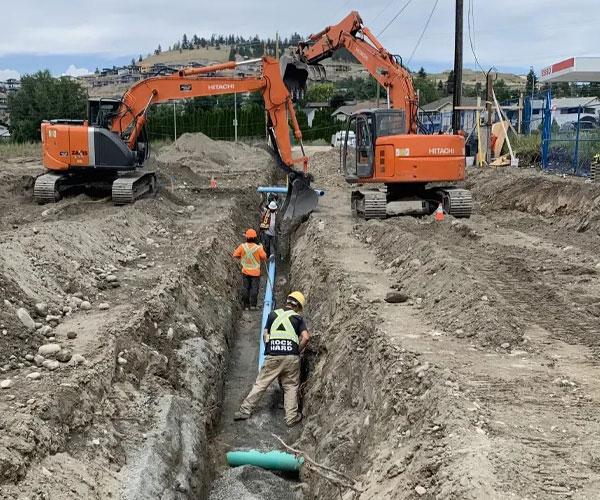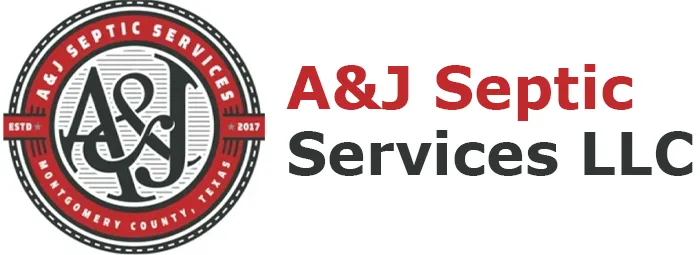
Common Utility Trenching Problems in Texas (And How to Prevent Them)
Why Utility Trenching Makes Homeowners Nervous
Utility trenching is not the first thing most homeowners think about when it comes to their property—until it suddenly becomes a priority. Whether you’re digging to replace water pipes, run gas lines, or lay electrical cables, trenching seems like one of those tasks that can quickly go wrong. You’ve probably heard horror stories from neighbors, or maybe you’ve been frustrated by delays and unexpected costs in the past. We get it.
At A&J Septic Services LLC, we know just how important it is to get this right. Trenching is often an invisible job until something goes wrong. The idea of digging into the earth to lay down critical utilities might leave you feeling uneasy, especially with all the unknowns—what if you hit something you shouldn’t? What if something goes wrong, causing damage to your property or even to your wallet?
In this article, we’ll break down the most common trenching problems homeowners face in places like Frisco, Waller, Montgomery, Harris, Fort Bend, and Austin Counties, and offer some practical advice on how to prevent them. You don’t need to be an expert to understand these challenges, and with a little preparation, you’ll have a much smoother trenching experience.
What Is Utility Trenching? (And Why It’s So Important)
Utility trenching refers to the digging of trenches to lay down utility lines like water pipes, gas lines, and electrical cables. This is critical work for both new construction projects and those involving maintenance or upgrades to existing systems. Utility trenches allow contractors to safely and effectively install, repair, or replace the systems that power your home’s infrastructure.
Without proper trenching, your utilities could be at risk, and issues could arise ranging from simple leaks to much larger safety hazards. The key to successful utility trenching? Precision, preparation, and the right team on the job.
The Big 3 Utilities: Water, Gas, and Power—What Can Go Wrong?
When you’re planning utility trenching, you’ll be working with three primary types of utilities:
Water Lines: These carry fresh water into your home. Any problems here, like a leak or a crack, could cause serious water damage or flooding.
Gas Lines: A gas leak can be dangerous—sometimes even fatal. It’s essential to handle gas lines with care and always follow safety procedures.
Power Lines: Damaged electrical cables can lead to power outages or, worse, fires. These lines must be protected during any trenching work.
Each of these utilities poses its own set of challenges, and it’s crucial to understand the potential issues before they happen.
Problem #1: Hitting Existing Utility Lines
One of the biggest worries homeowners have when it comes to trenching is hitting an existing utility line—whether that’s water, gas, or power. Imagine digging into your backyard only to hear the loud hiss of gas escaping from a damaged pipe or realizing your water line is broken mid-job. Not only does this cause immediate headaches, but it could lead to costly repairs, delays, and potentially dangerous situations.
How to Prevent It: Always make sure to have utility locates done before you start digging. In many places, local authorities or private contractors can help you mark out existing lines to avoid accidental damage. In some counties, like Frisco or Montgomery, there are specific regulations that require utility companies to mark lines before excavation begins. It’s one of the first things we do at A&J Septic Services LLC—we always take care to ensure that we know where everything is before we dig.
Problem #2: Poor Planning and No Permits
Many homeowners skip the proper planning steps to save time or money. This often means not obtaining the necessary permits before starting the project. Not only can this cause legal headaches, but it could lead to fines, unanticipated project delays, and even costly re-dos if the work isn't up to code.
How to Prevent It: Always consult with local authorities or your utility provider before digging. Depending on where you live—whether Grimes County or Fort Bend County—you’ll likely need permits to dig on your property, especially if it involves water, gas, or power lines. At A&J Septic Services LLC, we handle all of the paperwork and red tape for you so you can rest easy knowing everything is in order.
Problem #3: Incorrect Depth or Slope
Another issue that often arises during utility trenching is digging the trench too shallow or too deep. Both of these can lead to long-term problems. For example, if the trench is too shallow, the lines may be at risk of freezing in the winter or being damaged by ground movement. If the trench is too deep, the utility lines could shift, leading to potential problems down the line.
How to Prevent It: Getting the depth and slope of your trench right is crucial. This is a part of the job we pride ourselves on at A&J Septic Services LLC. We carefully measure and ensure that each utility line is laid down properly and safely—whether it’s water, gas, or power lines. It’s not something that should be done by guesswork. Your utilities should be at the right depth for long-term durability and safety.
Problem #4: Water Pooling and Drainage Failures
Water pooling in your trenches can cause a variety of problems. If your trench collects water, it could erode the sides, damage your utility lines, or even cause flooding in your yard. Improper drainage during or after trenching can also lead to settling and shifting, which can affect the stability of your utilities.
How to Prevent It: Ensuring proper drainage during trenching is a must. This means not only planning for water runoff but also paying attention to the surrounding land’s natural slope. At A&J Septic Services LLC, we know the importance of keeping the trench dry. We ensure that water is properly channeled away from your utilities and that everything stays stable.
Problem #5: Cheap Materials or Cut Corners
Sometimes, in an effort to save a few bucks, homeowners or contractors might choose cheaper materials or cut corners during the trenching process. This is a huge mistake, especially when it comes to utilities that need to withstand pressure, weather, and years of wear and tear.
How to Prevent It: Always use high-quality, durable materials for your trenching projects. Whether it’s piping for water, durable insulation for gas lines, or proper electrical cables, investing in top-notch materials from the start will save you money in the long run by avoiding future repairs.
Problem #6: Erosion, Soil Collapse, or Settling After the Job
After the trench is filled and the utility lines are installed, erosion, soil collapse, or settling can lead to uneven ground. This can cause issues like shifted utilities, cracks, and even damage to your landscaping.
How to Prevent It: Proper backfilling is key. At A&J Septic Services LLC, we carefully backfill each trench to ensure the soil is compacted and stable. We take extra steps to make sure that the ground settles evenly so you don’t experience unwanted surprises later.
Preventing Problems: What We’ve Learned Working Across Harris and Nearby Counties
From Waller to Austin County, we’ve seen just about every utility trenching challenge you can imagine. One of the biggest lessons we’ve learned is the importance of communication. By discussing the entire project, understanding your needs, and carefully planning each step, we’ve successfully navigated challenges and ensured our customers’ satisfaction.
When you choose A&J Septic Services LLC, you’re not just hiring a contractor—you’re working with a team that understands the nuances of your local area, from soil conditions to weather patterns, and knows how to make sure your utilities stay safe, effective, and reliable for years to come.
How to Choose the Right Trenching Contractor (Without Getting Burned)
Selecting a trenching contractor is no easy task, but when you follow these tips, you can feel confident in your choice:
Experience: Make sure the contractor has experience specifically in utility trenching.
Insurance and Permits: Ensure they are licensed and insured, and that they handle all the necessary permits.
References: Ask for local references and check reviews.
Communication: A good contractor will listen to your concerns and make sure you’re informed at every step.
What to Expect When You Work with A&J Septic Services LLC
When you work with us at A&J Septic Services LLC, we’ll take the time to understand your concerns and create a plan tailored to your needs. We offer personalized service from start to finish, ensuring every detail is addressed so you can rest easy. From obtaining permits to performing utility locates, we’ve got you covered.
Smart Trenching Starts with Good Conversations
Utility trenching doesn’t have to be a stressful or overwhelming process. By working with a contractor who understands the challenges and knows how to prevent common mistakes, you can ensure that your water, gas, and power lines are installed safely and efficiently.
At A&J Septic Services LLC, we are committed to providing expert trenching services with a personal touch. We pride ourselves on customizing our services to fit your unique needs. If you’re ready to get your project started, reach out to us today to learn more about how we can help.
